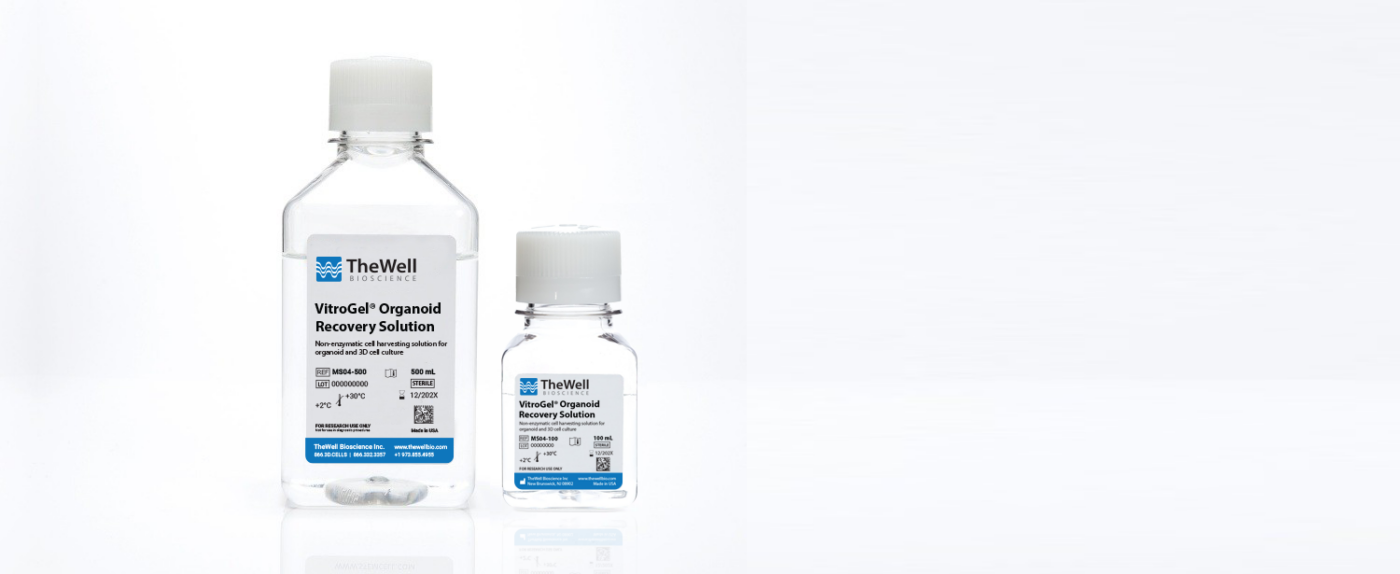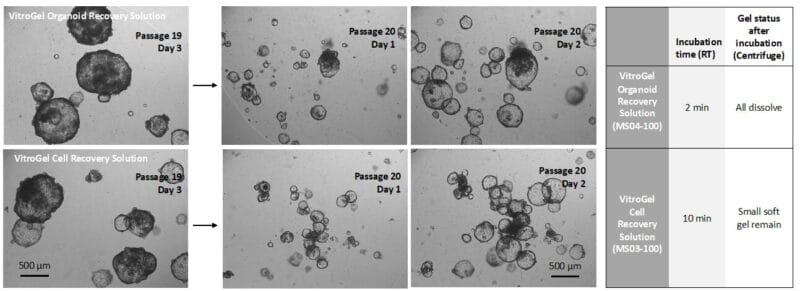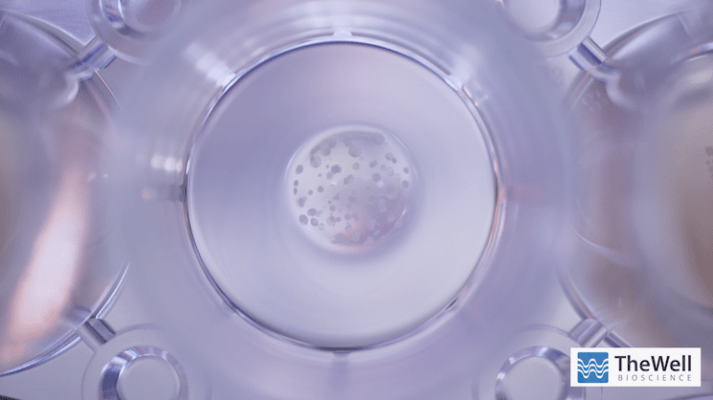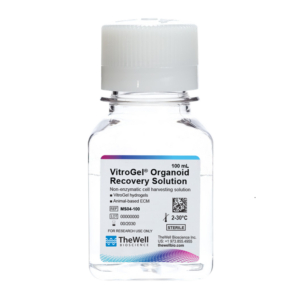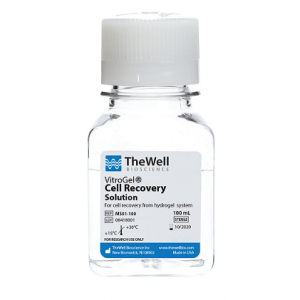3D and 2D Cell Harvesting – How Cell Harvesting Works in VitroGel®

High recovery and
cell viability

Fast ECM dissociation

Non-enzymatic and
stable for 15 months
Cell Harvesting fom the VitroGel® system is simple! Unlike most hydrogel matrices (synthetic or animal-based), which often require harsh chemicals or temperature changes that may harm the cells and result in low cell recovery yields, our enzyme-free VitroGel® Cell Recovery Solution and VitroGel® Organoid Recovery Solution simplify the process. Cells can be harvested at neutral pH and 37°C, ensuring high yield and cell viability.
How does cell harvesting work?
VitroGel® Cell Recovery Solution/VitroGel® Organoid Recovery Solution effectively converts solid hydrogel back to a soft hydrogel state. At this state, the VitroGel® hydrogel maintains the unique shear-thinning properties; it can further transform into a liquid state with a little mechanical disruption (such as rocking or shaking the tube) and dilution. Once the hydrogel dissolves as a liquid form, cells can be harvested by centrifuging.
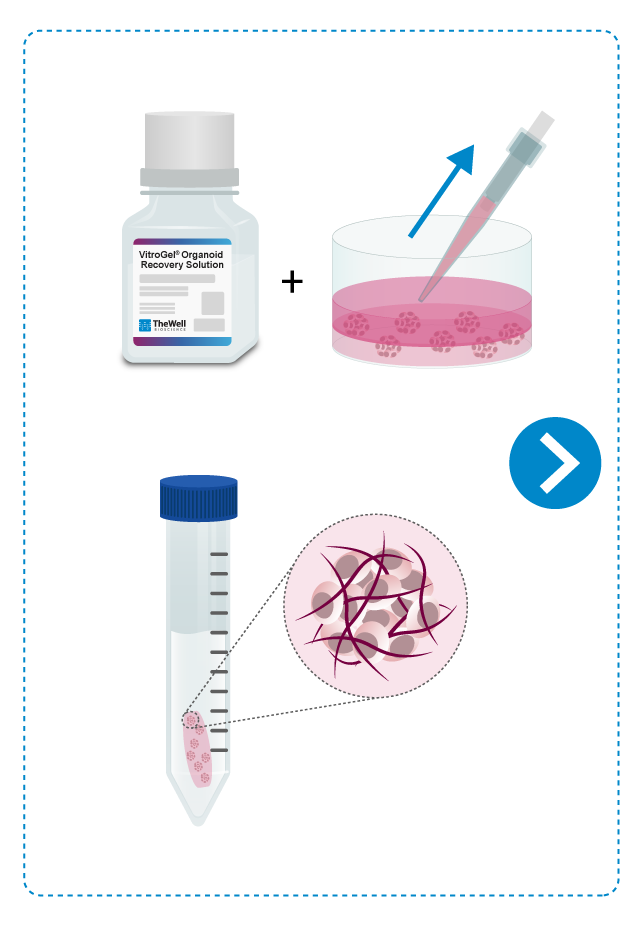

Remove cover medium and add VitroGel® Recovery Solution at 37°C to hydrogel.
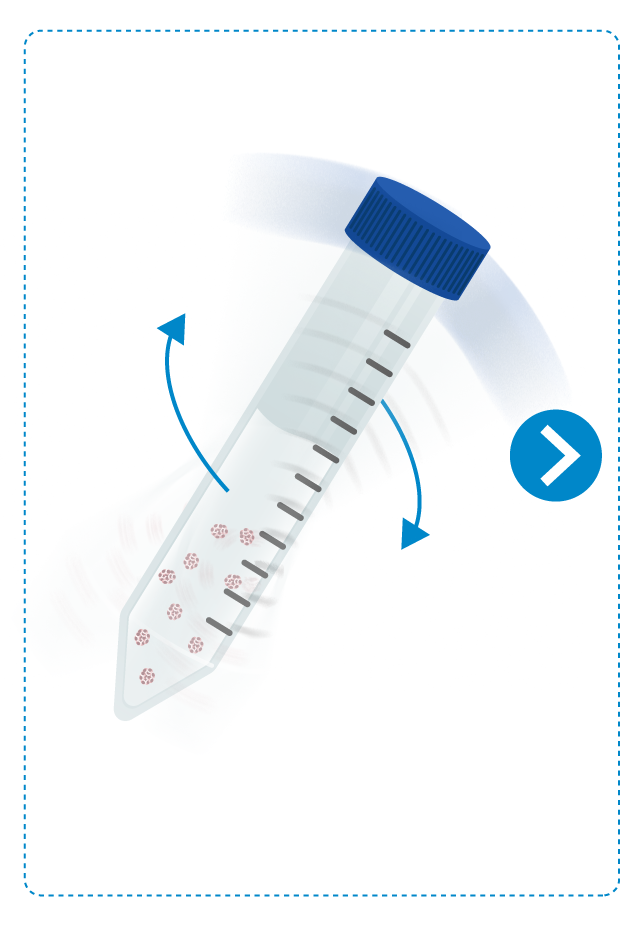

Apply mechanical force such as pipetting or rocking to transform the hydrogel into liquid state.
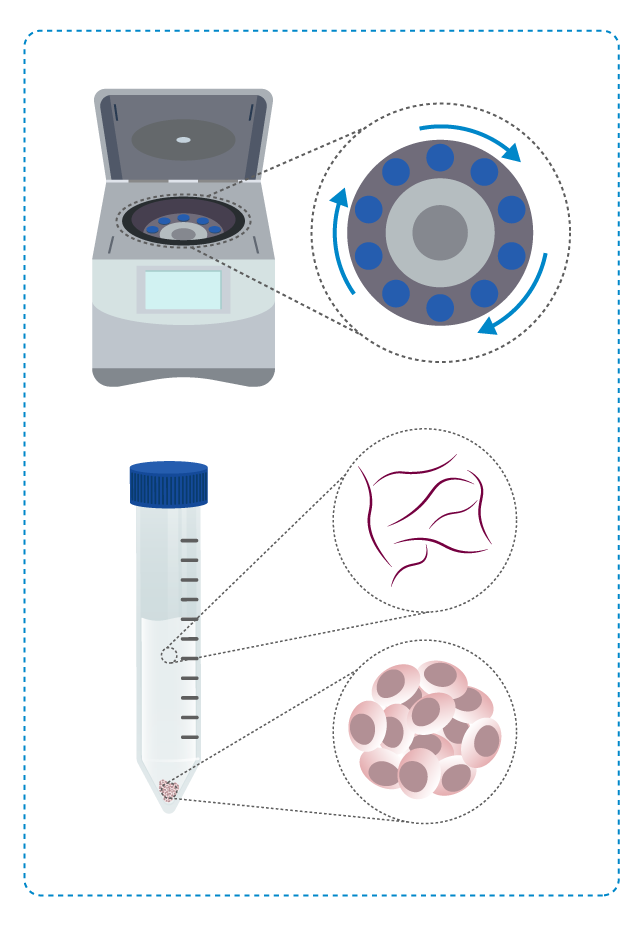

Centrifuge to separate cells from dissolved hydrogel solution.
VitroGel® Organoid Recovery Solution is the improved formulation of VitroGel® Cell Recovery Solution that can work for both animal-based ECM system and VitroGel® system.
Cell/Organoid Recovery from Animal-Based ECM
- Use at 4°C or ice bucket.
- Fast 2-minute ECM dissociation
- 10-min protocol
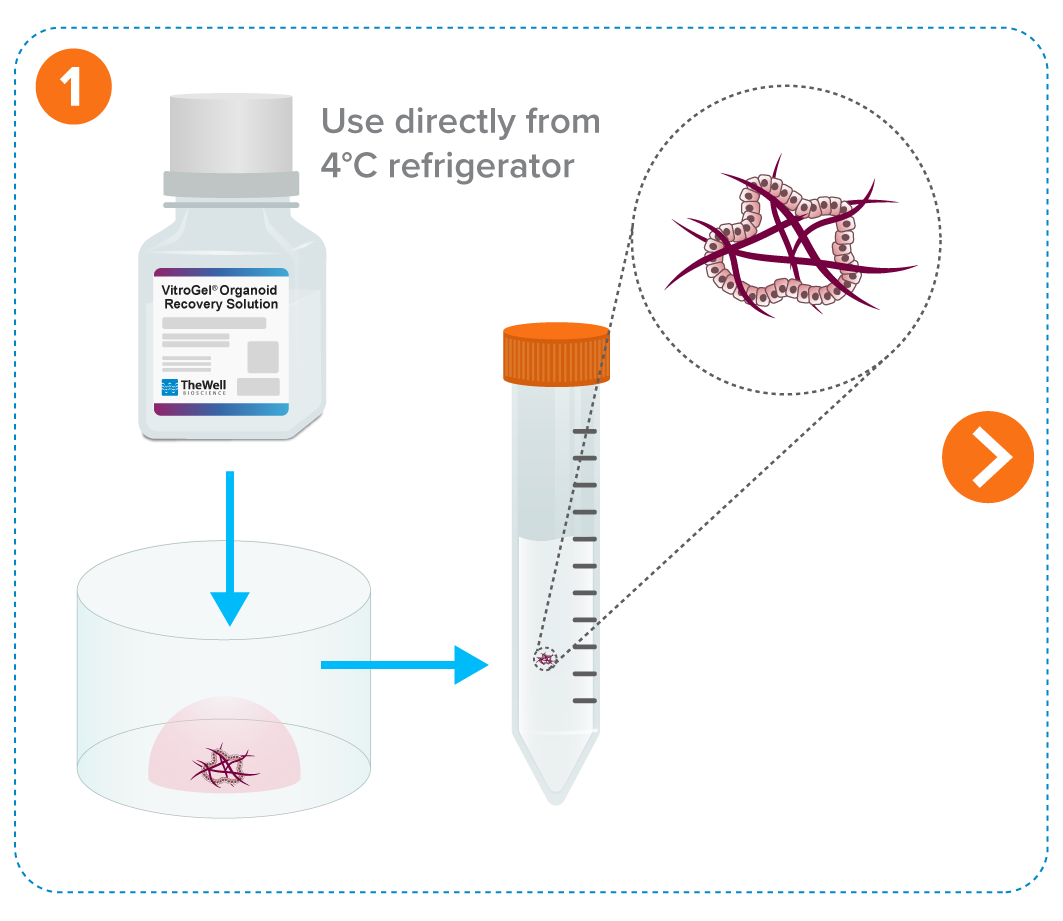

Mix recovery solution with the cells.
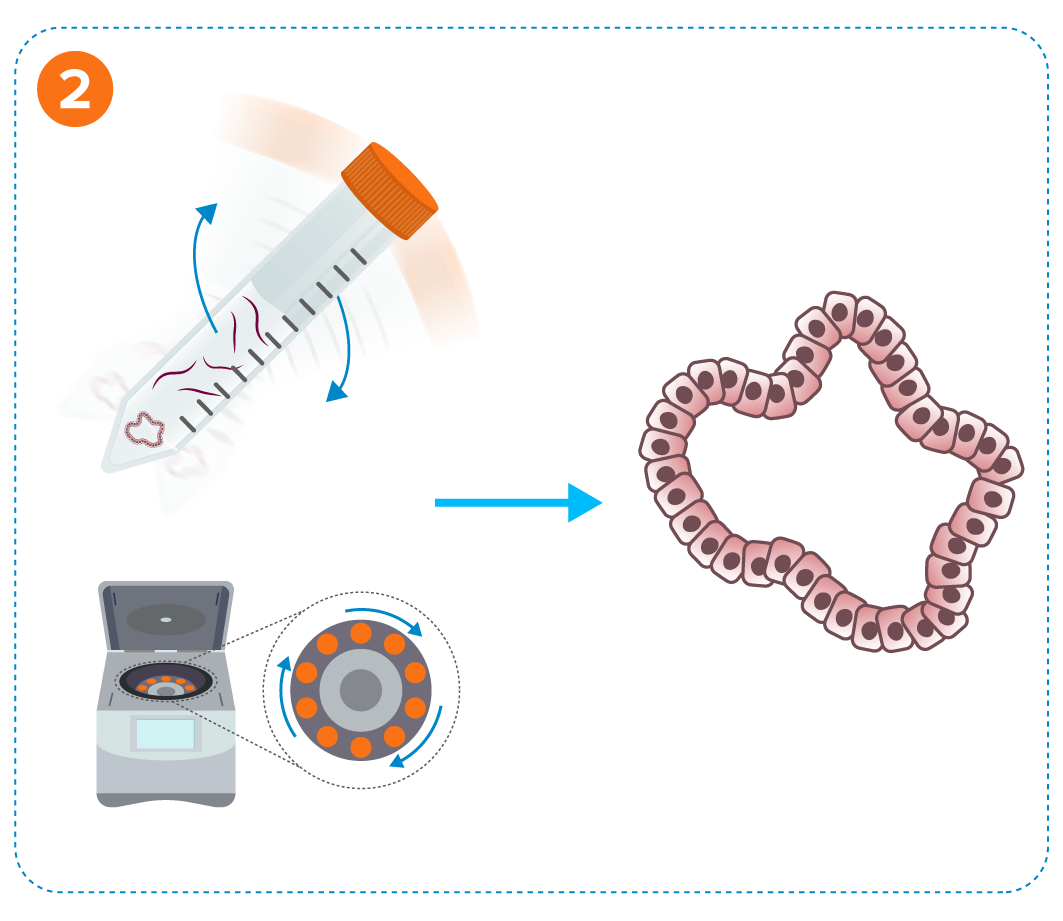

Rock tube for two minutes and centrifuge.
Cell/Organoid Recovery from VitroGel® hydrogels
- Use at 37°C.
- <15-minute protocol
- Safe, fast, and easy-to-use
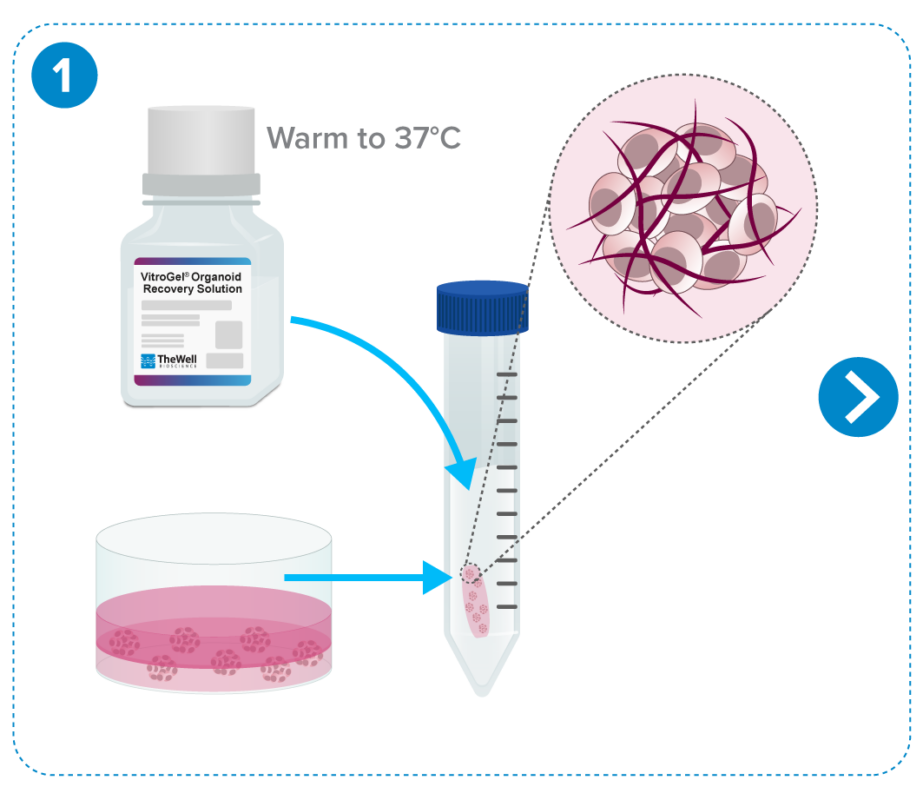

Mix recovery solution with the cells.
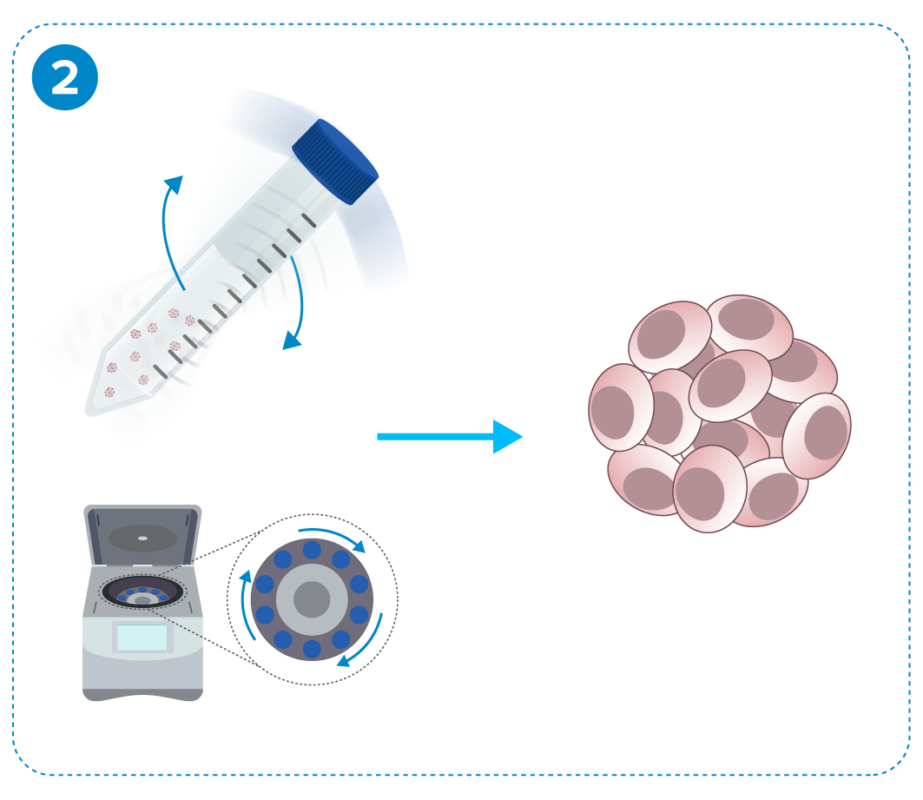

Rock tube at 37°C and centrifuge. Separate cells from the dissolved hydrogel.
2 Methods of Cell Harvesting from VitroGel® hydrogels – Video Protocols
Method 1: Uses a cut pipette tip to break and remove the hydrogel
Method 2: Uses a spatula to remove the hydrogel
Technical Tips
- KEEP SOLUTION WARM: It is important to keep the cell recovery solution and the mixture warm at 37°C during the whole process. The warm temperature is essential to accelerate molecular exchanges to release the ionic molecules from the solid hydrogel, which can transform into a soft hydrogel.
- APPLY MECHANICAL FORCE: The mechanical force such as rocking or shaking the centrifuge tube or using a serological pipette to mix the hydrogel with the cell recovery solution helps to transform the hydrogel into the liquid state.
- For large hydrogels, slice and dice them into smaller pieces to enhance the amount of hydrogel that dissolves in a liquid state.
- DILUTION: Adding the cell recovery solution at a volume of 10X or higher than the hydrogel maintains the dissolved hydrogel in a liquid state.
- CENTRIFUGE AT ROOM TEMPERATURE
References
FAQ
Yes, scientists can easily and quickly harvest cells with our enzyme-free, ready-to-use VitroGel® Cell Recovery Solution in 20 minutes. VitroGel® Cell Recovery Solution is room temperature stable, with a neutral pH, and has an operating temperature of 37°C. The cell harvesting solution can maintain high cell viability during the recovery process. Harvested cells can be further subcultured for both 2D and 3D.
Also, the VitroGel® Organoid Recovery Solution is the improved formulation of VitroGel® Cell Recovery Solution. It is a non-enzymatic cell harvesting solution that recovers cells/organoids from hydrogel or an animal-based ECM within 15 minutes and yields high-quality cells/organoids for downstream analysis or expansion.
Yes. Cells can be harvested from the VitroGel® system by using the VitroGel® Cell Recovery Solution/VitroGel® Organoid Recovery Solution and be sub-cultured for an additional period by using fresh VitroGel®.
VitroGel® Organoid Recovery Solution (MS04) doesn’t work well for collagen. Some stem cells, such as MSCs, when cultured in hydrogel for a while, produce their own ECM (mostly collagen), which will further crosslink the hydrogel. In such cases, an enzyme or proteinase needs to be added.
Gel dissociation directly in 96-well plate is possible:
Assuming 50 uL of gel in a well of a 96-well plate.
- Remove the cover medium, add 100 uL of pre-warm recovery solution Recommendation: Use VitroGel® Organoid Recovery Solution(MS04) for faster gel dissociation.
- Mix gel and solution by pipetting up and down for 5-10 times, add another 200 uL pre-warm cell recovery solution, mixing by pipetting up and down for 5-10 times.
- Keep the plate at 37°C for 5-10 mins (for strong gel, 15 min). If they have a plate shaker, use it during the 37°C incubation. Take the plate out and centrifuge the plate at room temperature.
For more information:

